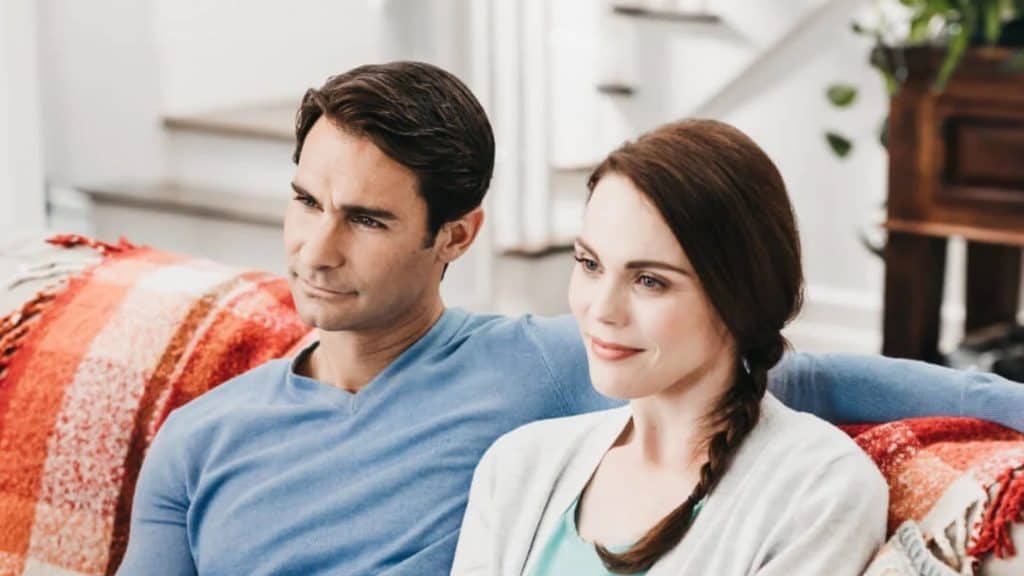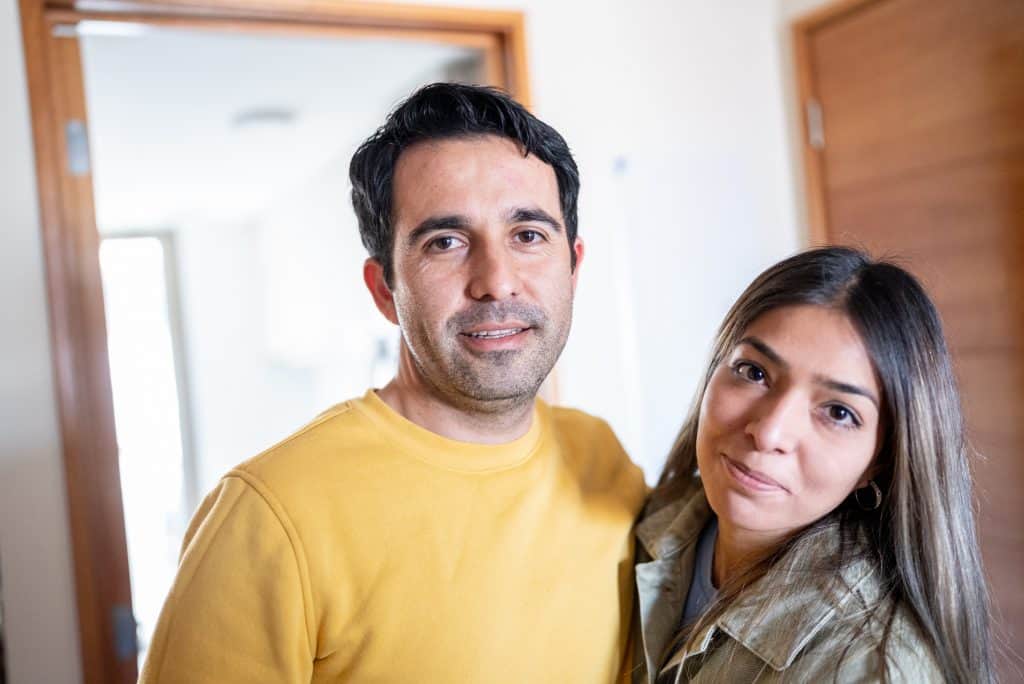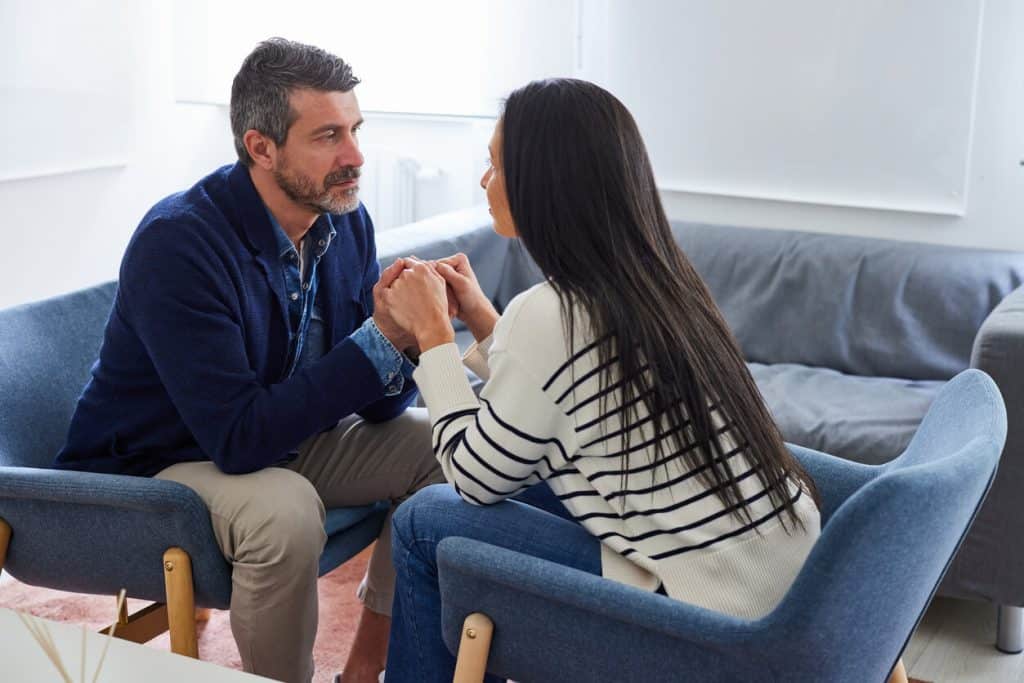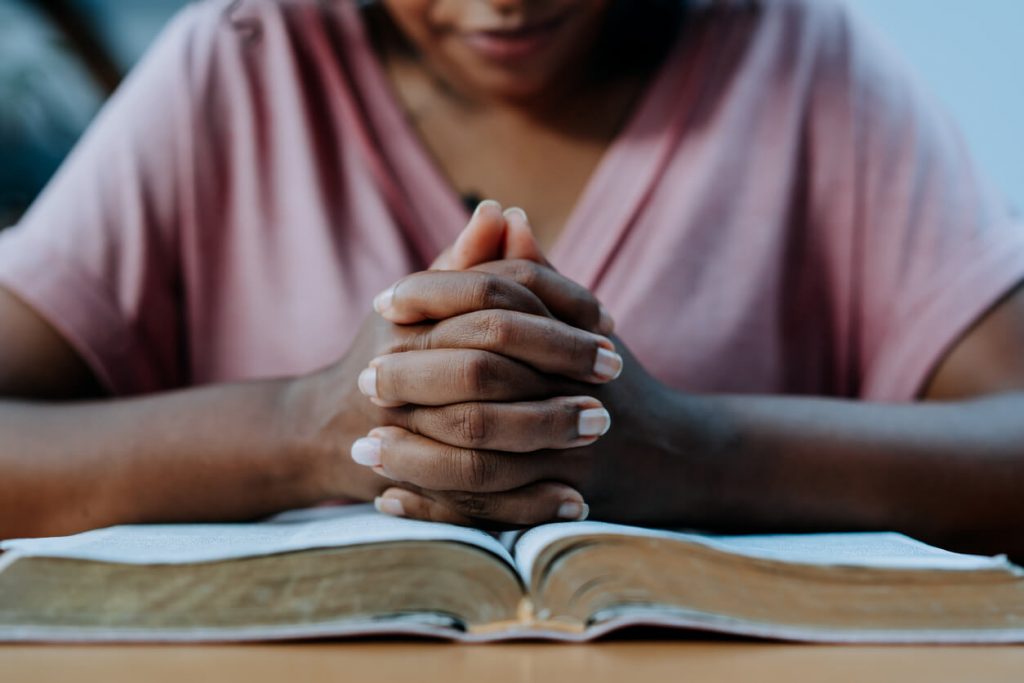Preface: This article focuses on the experience lived by partners of sex and pornography addicts. However, if you’re a porn user yourself, I warmly invite you to keep reading! If your partner is able and willing to do so, he or she may play a positive role in protecting you both from the potential trauma of exposure to more porn. On the other end of the spectrum, if your partner cannot (or prefers not to) get involved, please don’t pressure him or her to do so. By respecting your partner’s needs and preferences in this area, you begin to make amends for (and repair) the harms you’ve caused through your relationship with porn.
For those of us with loved ones who use internet pornography, minimizing our partners’ exposure becomes a high priority in our quest to get and stay emotionally safe.
On one hand, creating a “lust-free safety zone” (that’s the language I’ve created to reflect this concept for myself and my clients) can feel like a mutual and collaborative effort, two people “joining forces” to eliminate the freeflow of porn into our lives, homes, and devices.
On the other hand, such attempts at collaboration can easily backfire, sparking landmines of conflict, confusion and frustration—a breeding ground for resentment, misunderstanding, and relational disconnect.
If any of that sounds familiar, this message is for you.
Team We, Not Team Me
As a Betrayal Trauma Recovery Coach, I work with women healing from the impact of sexual secrets—usually within the context of a marriage damaged by hiding, denying, and minimizing porn use.
As I hear these stories, day after day, one fact never ceases to amaze me: that despite their hurt, anger, and trauma, partners of porn addicts usually want to support and participate in their loved ones’ recovery. For example:
- Every week I receive emails from porn addicts saying, “I know it’s my job to stop using porn. My wife wants to help me, but I’m afraid I’ll end up resenting her for doing so—and that’s the last thing I want.”
- Every day, my clients show up for their scheduled Betrayal Trauma Recovery Club sessions asking questions like, “How can I encourage my husband in his efforts to stop using porn?” or, “I worry when he’s up all night on the internet, but he says it’s not my job to ask him about that. Is he right? Is that true?”
- Then there’s my favorite question of all: “He’s a grown man, and I’m not his mommy. But somehow, no matter how hard I try, I still end up feeling like a babysitter! How can we prevent this dynamic from destroying our relationship?”
Truth be told, I love all of these inquiries because they’re equal parts vulnerable, brave, and empowered. I also love them because I believe in the beauty of loved ones supporting each other through life’s toughest stuff.
I’ve been there, and I get it. If there’s one thing I can tell you from 16 years of personal and professional experience, it’s this: supporting someone you love through his or her battle against porn is NOT easy. On the contrary, it’s challenging for even the strongest among us.
Maybe you’re already at that point of fatigue and frustration, or perhaps you’re still wondering when the “tough times” are going to strike. In either case, here are six messages of encouragement for days when you feel less like a partner and more like a babysitter.
Know that this is a decision you get to make.
Within this world of healing from the damage of sexual betrayal, experts are quick to offer their opinions about this topic of internet safety—including the degree to which partners of porn users should espouse certain rights, roles, and responsibilities in relation to their loved ones’ recovery.
Thankfully for all of us, I’m not one of those experts. Instead, as a coach who’s been trained by APSATS, The Association of Partners of Sex Addicts Trauma Specialists, I subscribe to the conviction that every single one of us is capable of identifying our most important needs and priorities in this area.
In our quest to minimize our risk factors for ongoing trauma, some partners of porn users choose to take self-protective steps like blocking certain websites, managing device passwords, or receiving online accountability reports. Others choose to decline such involvement, leaving those protections in the hands of their loved ones’ recovery support team.
As far as I’m concerned, neither of those choices is inherently right or wrong. If you can (and want to) be involved in limiting your loved one’s exposure to porn, please give yourself permission to make that choice on your own behalf. In the equal-yet-opposite direction, if you cannot (or prefer not to) participate in this effort, please give yourself the freedom, grace, and sensitivity to make that decision instead.
Bottom line? When it comes to deciding what you need to feel safe in your recovering relationship, that’s a decision only you get to make.
Bonus Tip #1: When it comes to resolving any form of trauma, healing begins by restoring to survivors their power of choice and personal autonomy. In other words, simply through the act of making a decision—either decision, in either direction—you are already helping yourself heal! (Now isn’t that an encouraging awareness?) As a coach, I’ll often encourage my clients to write themselves a paper-and-ink “permission slip,” something to recognize and reinforce the significance of making their own thoughtful and personal self-care decision.
Related: 10 Ways You Can Help Your Husband Leave Porn Behind
Acknowledge “protection fatigue” and expect to have a few bad days along the way.
If you make an intentional decision to participate in creating a lust-free safety zone, remember that, like all significant and meaningful decisions, this one involves some legitimate trade-offs, including both (a) predictable pros-and-cons, and (b) less predictable measures of emotional give-and-take.
As I support partners of porn addicts to navigate this arena, I’ve christened the term “protection fatigue” to describe the most common symptom of distress I hear from my clients. For those of us who’ve lived it, protection fatigue needs no explanation. For the rest of us, I can sum it up in one sentence: Some days helping to protect our loved one(s) from exposure to porn is just plain exhausting.
Here’s the bad news: When you assume some of the responsibility for helping to create a lust-free safety zone for your family, you accept the demands of a job that will consume some of your time, energy, and emotions. There will be days when the return doesn’t seem worth your investment, and there will be days when you feel overwhelmed, inconvenienced, and even resentful.
Now, here’s the good news: When you begin with an awareness that tough days will happen, you minimize your risk of being blindsided by them. You won’t be naive, unaware, or caught off guard. When you hit a bump in the road, you won’t assume that something’s inherently wrong with you or your partner, and you won’t lose your balance altogether because something didn’t go according to plan.
Bonus Tip #2: Has it been too long since you’ve paused to acknowledge the effort you carry on behalf of your loved one(s)? If so, pause with me a moment to do precisely that! Take a deep breath, place your hand over your heart, then read the following sentences out loud to yourself:
I see what you’re doing, and I understand why you’re doing it. I feel your exhaustion, and I notice what it’s costing you. I honor your commitment, and I honor you for making it. I care about how you’re feeling, and I invite you to care for yourself in the process.
Reach out to your tribe.
Next time you feel struck by protection fatigue, don’t try to deny it, suppress it, or minimize it. Instead, consider it your cue to vent some of the stress that’s mounting due to your arrangement, the distress that inevitably accompanies your chosen role in this challenging process. By expressing how you feel to non-judgemental members of your recovery “tribe”—usually other partners, parents, or friends of porn addicts—you’ll get your feelings validated quickly and in real-time, rather than “toughing it out” isolated and alone.
Because, here’s the truth you may or may not know: In reality, you’re light-years away from being alone! For every person who struggles with an addiction to pornography, there’s at least one other person (usually more than one) whose life is deeply impacted by the success or failure of that addict’s attempts at recovery.
Bonus Tip #3: If you don’t yet have a community of support to validate your experience of loving a porn addict, check out our weekly podcast or Betrayal Trauma Recovery Club. Both are among my favorite recovery resources.
Express how you feel—then ask your loved one to respond with appreciation.
For those who feel safe and stable within healthy, recovering relationships, I encourage you to consider telling your loved ones when you feel the weight of maintaining a lust-free safety zone for your family.
As you do, consider taking the conversation one step further: reach inside, find your brave, and ask your loved ones to express their appreciation for the work you are doing on your shared behalf.
Would it be nice to receive such appreciation without having to appeal for it? Absolutely! At the same time, I’m a huge believer in asking directly for the care and attention you’re craving (I call this self-advocacy), rather than suffering in silence without it. As The Rolling Stones song says, “You can’t always get what you want, but if you try sometimes, well you just might find, you get what you need.”
Bonus Tip #4: Most addicts will admit to being deeply self-centered—as evidenced by everything they risked and sacrificed while indulging in their porn relationship. Even in recovery, it’s easy for our loved ones to forget the ongoing impact of their addiction upon us and others. By (a) expressing how we feel on those tough days, then (b) asking them to express their appreciation for the ways we support their sexual sobriety, we provide our partners with a real-time reminder that we’re in this together.
Lean into internet safety as a lifestyle–then make it a family thing.
For most families healing from porn addiction and betrayal trauma, the first year (and the next few that follow) will be the most challenging period of your lives. As you transition between one stage and the next, your needs for protection from exposure to porn will evolve and change right along with you—which is precisely what’s supposed to happen! Some areas will require increasing efforts by each of you, while others will demand less and less focused attention.
Some couples assume that internet safety is a short-term protection or an interim necessity. But for most families, that doesn’t prove to be true. Over time, many porn addicts report needing more accountability and tighter internet filters than they once did. As counterintuitive as this may seem, it’s often an indicator of healthy recovery, as addicts experience deeper sobriety and increased sensitivity to less obvious triggers.
At junctures like this, I remind my clients that creating a lust-free safety zone isn’t a “once-and-we’re-done” sort of accomplishment. It’s more of an enduring lifestyle choice. Over time, everyone in your home can grow to recognize themes of self-protection, self-care, and personal safety, categorizing those characteristics as positive, long-term, and communal family values. By positioning them as such, your efforts don’t reflect the negative consequences of your loved one’s addiction to pornography. Instead, they reflect the positive aspects of caring for and supporting one another.
Bonus Tip #5: As you foster healing and protection as a family lifestyle, you model its benefit for even your youngest children. These concepts can bond your whole family together toward a shared system of values, long before your children are old enough to learn the hard facts about pornography.
Related: Equipped–Raising Godly Digital Natives
Remember the end game—who are you really protecting?
Surprising as this last point might be, it’s easy to forget why you’re working so hard to create and prioritize a lust-free safety zone.
You obviously don’t want to live in fear that your loved ones have easy and convenient access to pornography. And from there, it’s not a huge leap to presume that you’re driven by a need to protect the one(s) most vulnerable to that temptation.
In one sense, that’s probably true. And don’t get me wrong, working to protect the person you love is indeed important. But in another sense, protecting your addicted loved one probably isn’t your absolute, ultimate end game, nor is it your bottom-line responsibility.
So if not him (or her or them)… who is the ultimate beneficiary of your lust-free safety zone?
You are.
You.
You yourself.
You specifically.
You especially.
Because when it comes right down to it, as a betrayal trauma survivor, creating a lifestyle of safety, stability, and recovery isn’t primarily about your loved one. Instead, it’s a full-time job that involves caring for you, in ways that only you can fully understand, implement and appreciate.
Some days that job will be stressful, painful, and exhausting. Other days it will be reassuring, rewarding, and exhilarating.
But on all days, I can promise you: The work will be worth it—because you yourself are so very worthwhile.
Bonus Tip #6: Remember those inevitable days of protection fatigue? Those days when we’re hurt, angry, stressed, and resentful about dealing with the ramifications of our loved ones’ secret sexual life? At times like that, our desire to protect and support them likely won’t encourage us. By comparison, our desire to protect and support ourselves actually will.
In Closing
If you take away one final note from this post, let it be this: Healing doesn’t happen in random bits-and-pieces, without consideration for an overall plan. On the contrary, betrayal trauma recovery is an holistic and wholehearted venture—and if you are the emotional epicenter of your family, that holistic healing will often begin with you. Establishing a lust-free safety zone does include this hot-topic challenge of family internet protection. Just don’t forget that internet safety is really only the tip of the iceberg!
Our team at Betrayal Trauma Recovery has developed a free checklist for wives of pornography users, a tool designed to support your overall endeavor: helping you bring emotional and spiritual peace into your life and home.
Because really, isn’t that what healing and recovery are all about?








We have used covenant eyes and now we’re on net nanny. With both filters my husband complains almost daily about how he can’t use his phone, he couldn’t simply message a picture to me or read an article. While I can understand his frustrations I feel he’s lucky to still be married and should learn to live with it. He’s constantly turning the filters on and off without talking about it first. I don’t know how to address this anymore as he simply doesn’t care how it effects me only how it inconveniences him.
I think empathy for the spouse is one of the best measures of true recovery for men. Here’s an article I wrote about that a while back. When you see this pattern of lack of empathy on his part, that’s a warning sign. Here, here, and here are some articles on boundaries that might be helpful. You can’t control him, but you certainly have many choices available to you. You might also appreciate the online resources at Bloom for Women for your own support.
Thank you for your post about becoming free. I am a guy that REALLY struggles with temptations (sexual).
I know that you are a professional that knows other professionals. In light of that, I am asking if you can consult some other professionals about my situation (male professional). Please PRAY for me if you could.
Thank you,
David.
Hi, David – I’m not clear on your request. Can you please provide more information? Or email me directly at chris.mckenna@covenanteyes.com.
Thank you,
Chris